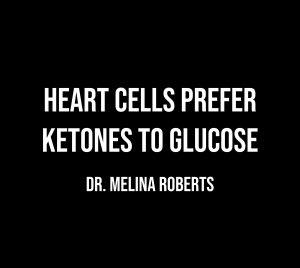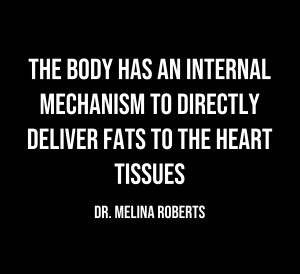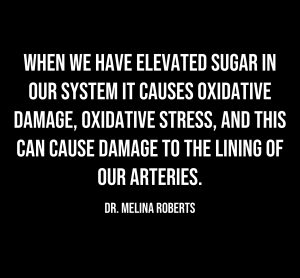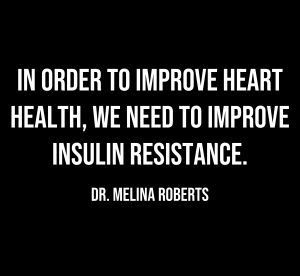Let’s talk about the connection between heart health and insulin resistance.
Many people don’t put that connection together and I think it is important to understand that we need to be treating insulin resistance when we are looking at heart health. Most people think of insulin resistance as more of a metabolic issue like diabetes, obesity, weight management. But there is a connection between insulin resistance and heart health.
One of the connections is if you supply the body with ketones, the actual heart cells will decrease their use of other fuels by 30-60% (Chen V, Wagner G, Spitzer J, 1984) and this is an indication that the heart cells, the heart tissues prefer ketones to glucose.
The body has an internal mechanism to directly deliver fats to the heart tissues and it does this by packaging the fats up into chylomicrons and then those chylomicrons are moved directly to the heart tissues through the lymphatic system (Woodall BP et al, 2019). This is an internal mechanism within the body that ensures that the heart tissues are able to use fat as fuel.
When we have elevated sugars in our system which happens when we have insulin resistance. Insulin helps to bring sugar or glucose into the cells to make energy. When those insulin receptors are not working well and we have insulin resistance then we end up with elevated blood sugars in our system because we are not utilizing the sugar or glucose as an energy fuel. When we have elevated sugar in our system it causes oxidative damage, oxidative stress in our system and this can cause damage to the lining of our arteries and when we have damage to our arterial system this can lead to what we call heart disease.
These are some key connections between insulin resistance and heart health and why we need to be paying attention to insulin resistance in terms of heart health. And in order to improve heart health we need to improve insulin resistance.
References:
Chen V, Wagner G, Spitzer J (1984). Regulation of substrate oxidation in isolated myocardial cells by beta-hydroxybutrate. Hormone and Metabolic Research, 16 (05), 243-247. Doi:10.1055/s-2007-1014756.
Woodall BP, Gresham KS, Woodall MA, Valenti M, Cannavo A, Pfleger J, Koch WJ (2019). Alteration of myocardial GRK2 produces a global metabolic phenotype. JCI Insight, 4(10). Dio:10.1172/jci.insight.123848.
Understanding the Heart by Dr. Stephen Hussey. Chelsea Green Publishing, 2022.




